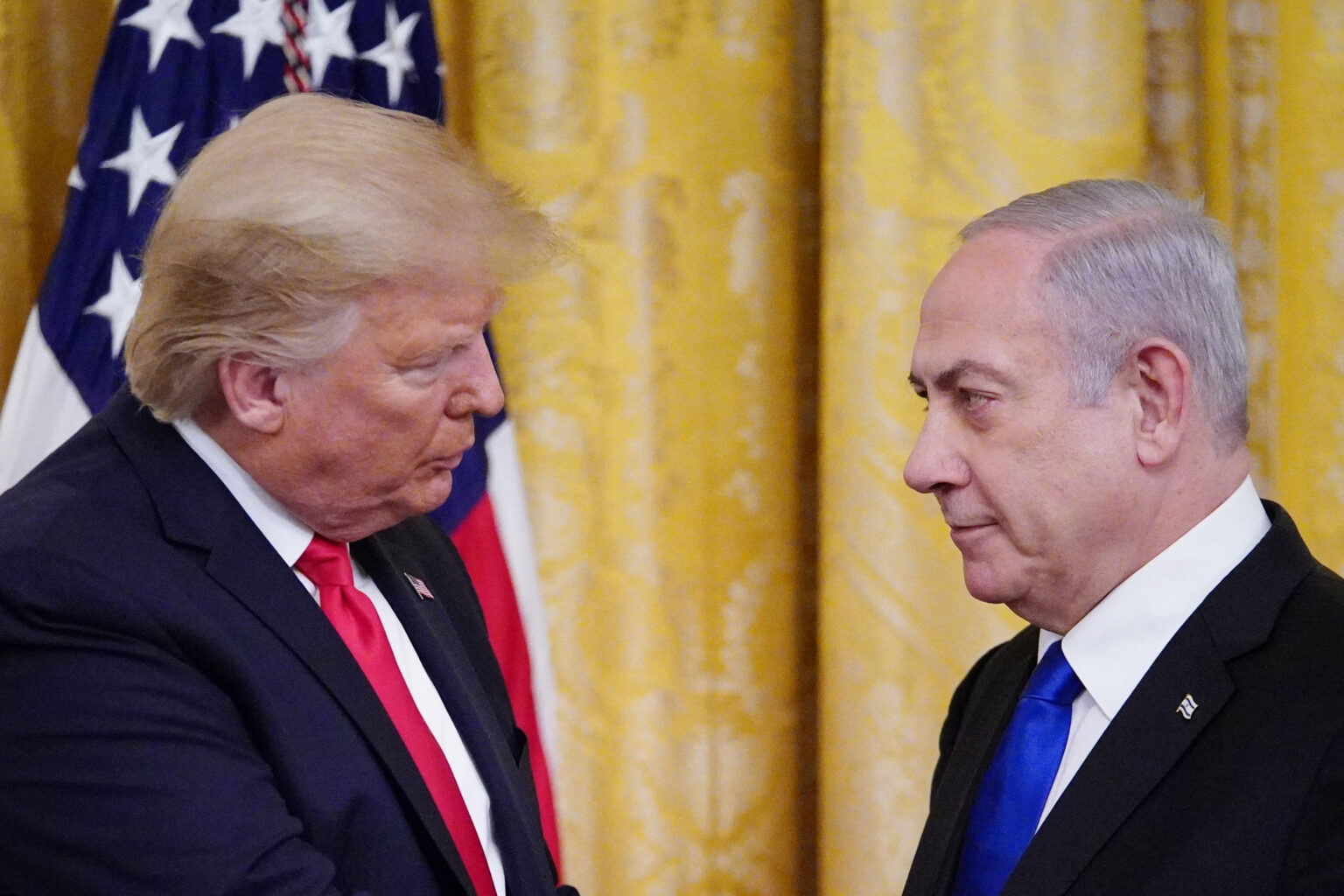President-elect Donald Trump’s inauguration this January will signal a tectonic shift in American foreign policy unmatched by any since Ronald Reagan’s swearing in 43 years before. With his understanding that diplomacy, to be effective, must be backed by power, Reagan succeeded Jimmy Carter who acted as if words alone could prevent the overthrow of the Shah of Iran or the Soviet invasion of Afghanistan. Trump, too, will follow a president who removed the military options from every table, even after Iran sent its proxies to murder American soldiers and assassinate former U.S. officials. The diplomatic accomplishments of the 46th president, consequently, were negligible. Those of the 47th, by contrast, could prove historic.
Observers are already calling it a “diplomatic whiplash,” a 180-degree turn that will alter alliances and overturn long-held strategic assumptions. Whereas the previous administration expressed a profound belief in engagement as the best way to avoid conflict and in the moral authority of the United Nations, the incoming administration will view engagement as the product of, and not a substitute for, hard power. Rather than a source to be quoted, it will consider the UN a threat to be mitigated and managed. Whereas the Biden White House viewed war not as diplomacy by other means but the failure of diplomacy by all means, the Trump White House will engage in diplomacy while brandishing a very big stick. The world we’ve known since the end of the Cold War, perhaps even World War II, could be fundamentally transformed.
Among the most far-reaching changes will be the Trump administration’s more muscular approach to China, blocking its efforts to spy on the United States and steal its industrial secrets. Stiff tariffs on Chinese imports will be levied. Though the 47th president has pledged to end wars and avoid becoming embroiled in new ones, his promises to reinforce America’s military capabilities will redound in Taiwan and the South China Sea. Japan, South Korea, and other Asian allies will experience a revival of confidence in American protection.
In Europe, the Trump team is determined to negotiate an end to the war in Ukraine. This will likely involve direct talks with Russian President Vladimir Putin and a settlement based on the territorial status quo and guarantees of Ukrainian neutrality. Continuing the policy of his first term, Trump will expect the NATO countries to rely far less on the United States and to bear a greater percentage of their defense burden. Unlike their Asian counterparts, European leaders are liable to be left feeling less secure. Much of that uncertainty can be mitigated, however, by pledges of America’s commitment to intervene forcibly if Putin were to violate the terms of the peace.
Nowhere will the changes be more radical than in the Middle East, the scene of the Biden administration’s most stinging failures. There, faced with the prospect of renewed punishing sanctions and the further elimination of Iranian commanders such as General Qasem Suleimani, assassinated on Trump’s orders in 2020, has already frightened Tehran into offering talks. Deprived of their major patron, gravely downgraded by Israel, Iran’s terrorist proxies—Hamas, Hezbollah, and the Houthis—will wither. Unlike the nuclear agreement that President Barack Obama signed with Iran in 2015, and which President Joe Biden tried to revive, Trump is likely to seek a deal that does not merely delay Iran’s path to the bomb but verifiably dismantles Iran’s bombmaking facilities.
The Middle East war that began in Gaza and has spread to Lebanon and other fronts stands to be ended early in the next administration. Unlike the “day after” scenario in Gaza championed by Biden and Secretary of State Anthony Blinken, both of whom envisioned the outsourcing of Israel’s security to the Palestinian Authority and an inter-Arab force, the Trump approach will likely recognize Israel’s need to preserve a long-term military presence in the Strip. While Blinken repeatedly criticized Israel for “dehumanizing” and “killing too many” Palestinian civilians, his imminent replacement, Marco Rubio, regards Hamas as “one hundred percent” responsible for civilian deaths.
In Lebanon, too, instead of Biden’s insistence on holding Israel back, opposing its ground operations in the south and its bombing of Hezbollah positions in Beirut, the Trump White House will encourage Israel to deal the terrorists a decisive blow. Instead of relying on a feckless Lebanese army to guard Israel’s northern border, Trump will support greater latitude for Israel to defend itself and prevent any Hezbollah attempts to infiltrate the area. Not only Israel but Lebanon will be strengthened.
Today, some 101 Israeli hostages remain in unspeakable Hamas captivity in Gaza. By exerting pressure beyond the mere diplomatic—say threatening to list Qatar as a state sponsor of terror and to relocate America’s military base there to Bahrain—Trump can repatriate the Israelis. The peace process, moribund under Biden, can be resuscitated and the Abraham Accords expanded to include Saudi Arabia and other Sunni states. New railways will cross the region and connect it with Europe and Asia. Progress can also be made on the Palestinian issue, based on Trump’s “Deal of the Century” plan updated to reflect post-Oct. 7 realities.
The world about to be forged in the Trump era may bear little resemblance to one we knew before, but it promises to be more secure, more stable, and based less on ideology than realism. Though isolationism will continue to pose challenges to interventionism and America’s traditional role as defender of the free world, there will at least be a sense freedom cannot be safeguarded by rhetoric. Reagan’s diplomatic whiplash brought down the Soviet empire and created a Pax Americana. Trump’s whiplash can give birth to a new one.
Dr. Michael Oren, formerly Israel’s ambassador to the United States, Knesset member and deputy minister for diplomacy, is the founder the Israel Advocacy Group and the author of the Substack Clarity.
The views expressed in this article are the writer’s own.
Read the full article here

